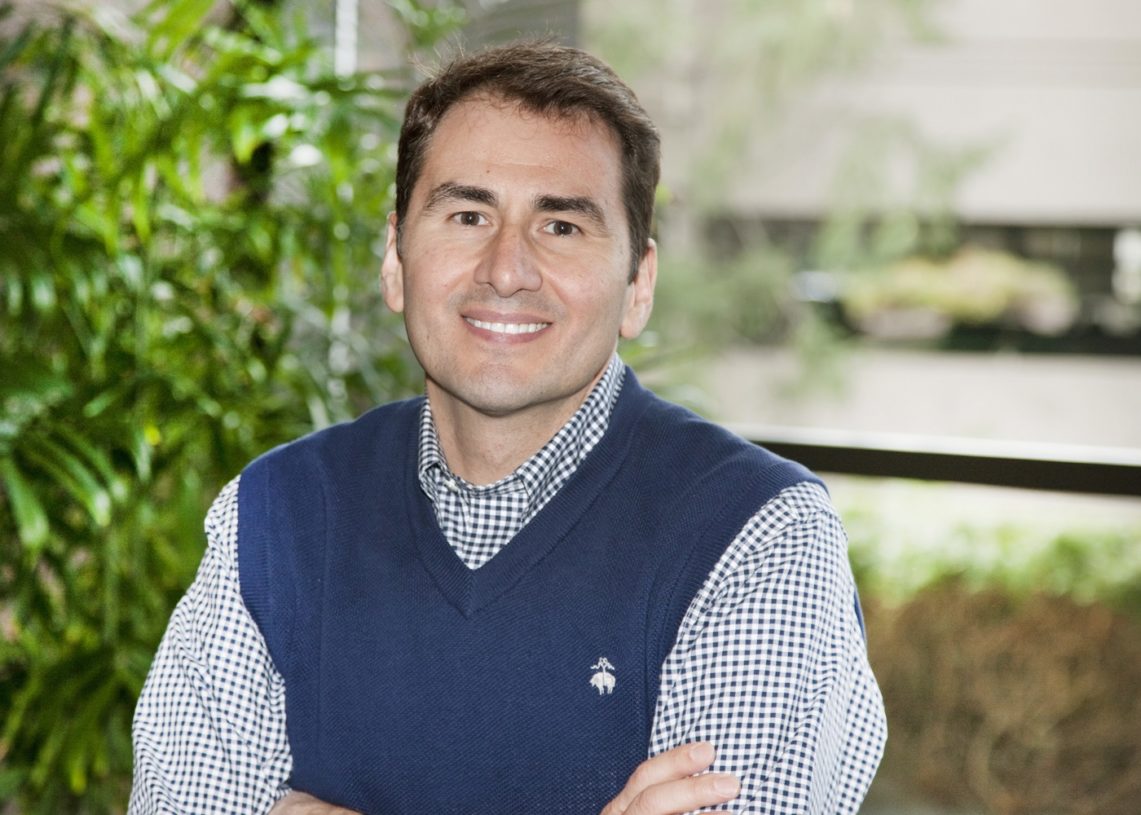Olin convenes 1st ‘Data for Good’ conference with business leaders, academics
- September 28, 2018
- By Kurt Greenbaum
- 3 minute read

Suppose your company made a substantial annual investment in a major civic event that measurably improved the lives of community members. Would that affect the business opportunities you pursue? The way you market your business? Your philanthropic spending?
The answers, of course, are all “yes.” But take a step back: How do you know your annual investment is providing those measurable returns? These questions lie at the core of a featured presentation at Olin’s inaugural Data for Good conference on October 5.
The presentation by Tony Sardella, CEO of predictive analytics technology company evolve24 is one part of a daylong agenda for business leaders and academics examining strategies for using data to make a positive and principled difference in businesses, organizations, and the community at large. Sardella will present on “Fostering Community Well-Being: Using Data to Drive Better Program Decisions.”
Making a difference with data
“That’s the goal: to let a company or a city or an organization know they’re really helping,” said Sardella, an adjunct lecturer at Olin. “How do you know your best programs? A lot of organizations are really struggling with that.”
In his presentation, Sardella will unveil a new study of civic well-being in the city of St. Louis, part of a broader study evolve24 has conducted in Los Angeles, New York, Chicago, Houston, Philadelphia, the District of Columbia, and San Monica. The research measures the outlook of residents and cross references residents’ “subjective well-being with data such as health, crime, housing starts, and other tangible data points.
Sardella was surprised to find, for example, how deeply the annual Shakespeare Festival St. Louis appears to influence civic well-being in the community. “That was definitely a little bit of an ‘ah-ha!'” Sardella said. “We had no idea.”
He said evolve24 uses publicly available digital content in its analysis of “subjective well-being,” running the unstructured, anonymous data through complex algorithms that can analyze what makes people happy about their communities—and what doesn’t. Data comes from open social media sites, blogs, comments in public forums, media news coverage, and elsewhere.
WashU leadership in the field
Knowing this information, he said, means organizations can better understand where their programs and initiatives have the biggest impact. Sardella hopes his presentation will highlight the ways business analytics—used with a values-based framework—can drive more principled decision-making. He also hopes it puts a spotlight on WashU Olin’s leadership in this area of business strategy.
“This is really important for WashU,” he said. “I’m passionate about it because some companies are starting to pull the plug on their data lakes. They’re struggling to create value for the business. But it’s about better decision-making. To make a better decision, you have to quantify and predict the consumer trends and make decisions now that match with those trends.”
Olin’s Center for Analytics and Business Insights and the Bauer Leadership Center will jointly present the October 5 Data for Good conference, which reinforces a key component of the Business School’s strategy to produce values-based, data-driven decision makers who are equipped to change the world, for good.
“It’s clear how carefully the organizers dovetailed their agenda with the needs of business leaders today and in the future,” said Olin Dean Mark Taylor. “I’m very much looking forward to hearing some of the takeaways our community colleagues and students will gain from our first Data for Good conference.”
The agenda includes presentations by executives from Equifax, Mastercard, and Daugherty Business Solutions that will explore issues such as data privacy, community philanthropy, and collaboration with a community to use the data.
The program will conclude with a keynote address by Jake Porway, founder and executive director of DataKind, a nonprofit that partners data scientists with leading social change organizations to ask the right questions—and find answers to maximize social impact.
Olin’s Data for Good conference starts with breakfast at 7:30 a.m. and runs until 2 p.m. on October 5 in Emerson Auditorium. Click to learn more and register.
Media inquiries
For assistance with media inquiries and to find faculty experts, please contact Washington University Marketing & Communications.
Monday–Friday, 8:30 to 5 p.m.
Sara Savat
Senior News Director, Business and Social Sciences
